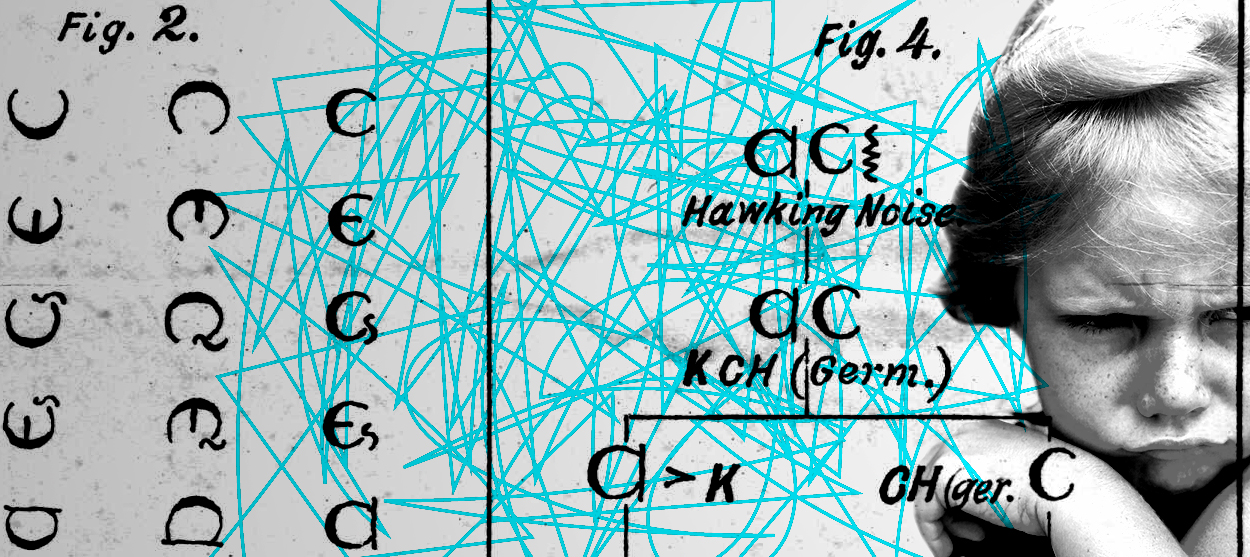The taxonomy of whining
From fake crying to the jealousy grumble


A free daily email with the biggest news stories of the day – and the best features from TheWeek.com
You are now subscribed
Your newsletter sign-up was successful
One morning in late 2012, I woke up in a breathy panic. How on Earth was I supposed to communicate with the baby I was due to have in a few months? Would I somehow know which cries meant "hungry" or "sleepy," and which meant, "Hey. So, I'm lying in puddle of my own waste. When you have a second, be a dear and fix that"?
So, I read a lot of articles and watched YouTube videos on what an infant's different cries actually signify. As is almost always the case with self-educating internet sessions, the information turned out to be virtually useless. But it calmed me down until I actually met my child and quickly learned her squawky wordless language.
As babies get older, those simple food/diaper/sleep cries evolve into a complex cacophony of emotionally fraught whines, wails, and repetitive huffs and grunts. Yet, from the point at which a child has some language — around the year mark — we begin to ignore and discourage these sounds in a bid to tease out new words.
The Week
Escape your echo chamber. Get the facts behind the news, plus analysis from multiple perspectives.

Sign up for The Week's Free Newsletters
From our morning news briefing to a weekly Good News Newsletter, get the best of The Week delivered directly to your inbox.
From our morning news briefing to a weekly Good News Newsletter, get the best of The Week delivered directly to your inbox.
But actually, these guttural kid noises, which at times fuse with actual language, can reveal more about their mood and needs than words alone. For instance, if my four or six year old tell me they're hungry, and that statement is accompanied by a kind of drilling groan that makes my brain feel like it's slowly being fed into a cheese grater, then I know it's probably just boredom. They do not, in fact, need a fourth serving of Cheddar Bunnies.
Here's everything else I've figured out:
Dinosaur noises
When my kids fight, which they have done ever since the littlest one was coordinated enough to steal and chew on his big sister's stuff, they sound how I imagine a pair Tyrannosaurus siblings might if they ever really got into it. As soon as their argument descends into shrill squawks and roars, I know I need to stop whatever I'm doing, insert myself into their quarrel, and referee until such time as it fizzles out or we broker a peace deal. It's a frenzied call-to-action, much like a smoke alarm.
A free daily email with the biggest news stories of the day – and the best features from TheWeek.com
The white-noise whine
If my six-year-old daughter's having a rough day, or, as she puts it, "I can't stop thinking bad thoughts," there's an accompanying electrical hum that's almost too low a frequency to hear. Usually, this agitated purr comes before her words and tears, and I can mentally prepare for a session of gently soothing her bruised psyche.
The "ong" sound
At times (occasionally multiple times an hour), my four year old feels lightly wronged, which is to say he can't quite bring himself to pursue a full-on meltdown, but this may or may not be a precursor to exactly that. When this happens, he'll make a noise that my husband and I have called "ong-ong-ong," or "ong-ing." It's not his loudest whine but it's one I can still hear from the other side of our apartment. And if I get to him quick enough, I can sometimes get him back on track without this wave of discontent devolving into a tsunami.
The irrational ululation
This warbling, almost animalistic whine emanates from my son whenever he demands that two contradictory needs be met at once. Like if he wants to go outside and ride his scooter, but also wants watch TV. Or if he wants dinner, but not the dinner that happens to actually be his dinner. There's no cure for this one and we have to wait for it to pass, like bad weather.
The frustration growl
Literacy, at least in our house, hasn't happened by osmosis, as we lazily thought it might if we read to, and in front of, our kids from an early age. Now, if my first grader can't sound out a word, she will snarl defensively at whichever adult is trying to help. Push it, and the snarl ratchets up a couple of octaves and several decibels, and I sit nervously waiting for knocks from concerned neighbors.
Fake crying
When my kids really want to get my attention, they convert whatever brand of whining they've landed on into theatrical dry crying. Their faces scrunch and their vocal cords obligingly ricochet around their necks pushing forth what would be fully believable sobs, if it weren't for the dry eyes.
The jealousy grumble
News that someone got something my kids don't have but want is usually met with demands that I somehow right this diabolical wrong. My first "no" is always followed by their throaty, pathetic protest sounds. When I finally shut them down and they realize they've lost the battle, they sign off with an injured huff. The kind that makes me think that denying them a Barbie Dream House may have irreparably injured their fragile psyche, though not as much as caving and actually buying the Barbie Dream House.
-
 Can Europe regain its digital sovereignty?
Can Europe regain its digital sovereignty?Today’s Big Question EU is trying to reduce reliance on US Big Tech and cloud computing in face of hostile Donald Trump, but lack of comparable alternatives remains a worry
-
 The Mandelson files: Labour Svengali’s parting gift to Starmer
The Mandelson files: Labour Svengali’s parting gift to StarmerThe Explainer Texts and emails about Mandelson’s appointment as US ambassador could fuel biggest political scandal ‘for a generation’
-
 Magazine printables - February 13, 2026
Magazine printables - February 13, 2026Puzzle and Quizzes Magazine printables - February 13, 2026
